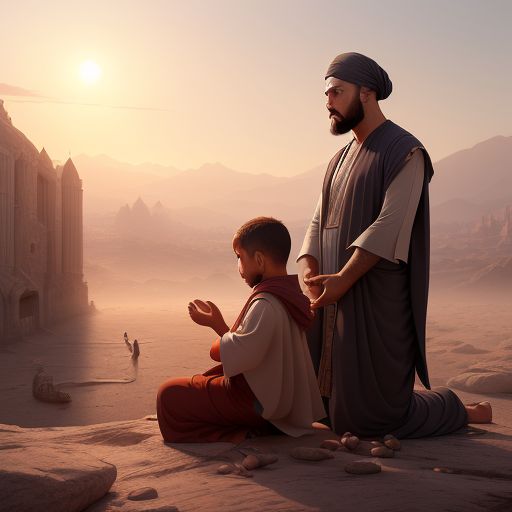In the culturally diverse archipelago of the Philippines, a nation known for its traditions and rich tapestry of religious observances, June 17, 2024, marks a significant national holiday—the celebration of Eid’l Adha, also known as the Feast of Sacrifice. Let us explore the history, significance, and cultural impact of this revered Islamic holiday in the Philippines.
A Historical Perspective:
Eid’l Adha, rooted in the Islamic faith, commemorates the story of Prophet Ibrahim’s willingness to sacrifice his son. It is an act of obedience to Allah’s command. The holiday is deeply significant as it underscores the values of faith, devotion, and selflessness. It reminds Muslims worldwide of the importance of surrendering to the will of Allah and putting their faith above all else.
Islamic Faith in the Philippines:
With a significant Muslim population, the Philippines is home to a vibrant Islamic community. Eid’l Adha holds great importance for Filipino Muslims, and its observance exemplifies their unwavering commitment to their faith. The celebration of this holiday serves as a unifying force. Bringing together Muslims from various regions and cultural backgrounds to honor their shared beliefs.
The Feast of Sacrifice:
Eid’l Adha is aptly named the Feast of Sacrifice, as it symbolizes the ultimate act of devotion and selflessness. Muslims mark this occasion by sacrificing a halal animal, such as a goat, sheep, or cow, as a commemoration of Prophet Ibrahim’s willingness to sacrifice his son. The meat from the sacrificed animal is divided into three parts. One for the family, one for relatives and friends and one for the less fortunate,. This emphasize the values of generosity and compassion.
Prayers, Reflection, and Community:

On the day of Eid’l Adha, Filipino Muslims gather in mosques, prayer grounds, and designated areas for communal prayers. The faithful come together to offer prayers of gratitude and seek forgiveness. This is also to reflect on the importance of sacrifice in their lives. The act of communal worship strengthens the bond between individuals. It also fosters a sense of unity and camaraderie within the Muslim community.
Eid’l Adha is a time of joyous celebration, marked by feasting, exchanging gifts, and expressing gratitude. Families and friends come together to share delicious meals, exchange warm wishes, and partake in festivities. It is also a time for acts of charity and giving back to the community, as Muslims extend their generosity to those in need, ensuring that everyone can partake in the celebrations.
Cultural Harmony and Understanding:
While Eid’l Adha is primarily a Muslim holiday, its celebration in the Philippines transcends religious boundaries, promoting cultural harmony and understanding. The nation embraces the diversity of its citizens, and the government recognizes the significance of this holiday by declaring it a national holiday, fostering unity and respect among different religious groups.
Eid’l Adha, the Feast of Sacrifice, is a cherished and meaningful celebration for Muslims in the Philippines. It serves as a reminder of the virtues of faith, devotion, and selflessness, while also fostering unity and cultural harmony within the nation. As the Philippines continues to embrace its diverse heritage, the observance of Eid’l Adha stands as a testament to the country’s commitment to respecting and celebrating religious traditions.
Click the links to know more of my Personal Thoughts & About Philippines.
Like other posts this post it also perfect one . Even after knowing everything about Eid Al Adha I loved reading the post . Its worth reading.
Thank you for appreciating this post! 😌 have a pleasant night ahead of you
Like other posts this post it also perfect one . Even after knowing everything about Eid Al Adha I loved reading the post . Its worth reading.
Thank you for appreciating this post! 😌 have a pleasant night ahead of you
Really really so awesome to know about such things 🤗👍👍
Thank you! 🙂
Really really so awesome to know about such things 🤗👍👍
Thank you! 🙂
Happy El’Adha Feast 😁
Happy El’Adha Feast 😁
Perfect
Perfect
Your exploration of Eid’l Adha in the Philippines is beautifully written and provides a deep understanding of the significance of this Islamic holiday. It’s heartwarming to learn about the unity and devotion displayed by Filipino Muslims during this celebration. The emphasis on sacrifice, community, and cultural harmony is truly inspiring. Thank you for sharing this enlightening piece that highlights the rich tapestry of religious observances in the Philippines.
Thank you for appreciating the post. Have a good day ahead
Your exploration of Eid’l Adha in the Philippines is beautifully written and provides a deep understanding of the significance of this Islamic holiday. It’s heartwarming to learn about the unity and devotion displayed by Filipino Muslims during this celebration. The emphasis on sacrifice, community, and cultural harmony is truly inspiring. Thank you for sharing this enlightening piece that highlights the rich tapestry of religious observances in the Philippines.
Thank you for appreciating the post. Have a good day ahead
😲 wow!
Interesting and detailed piece of information!
Keep it up!
Thanks you! ☺️
😲 wow!
Interesting and detailed piece of information!
Keep it up!
Thanks you! ☺️